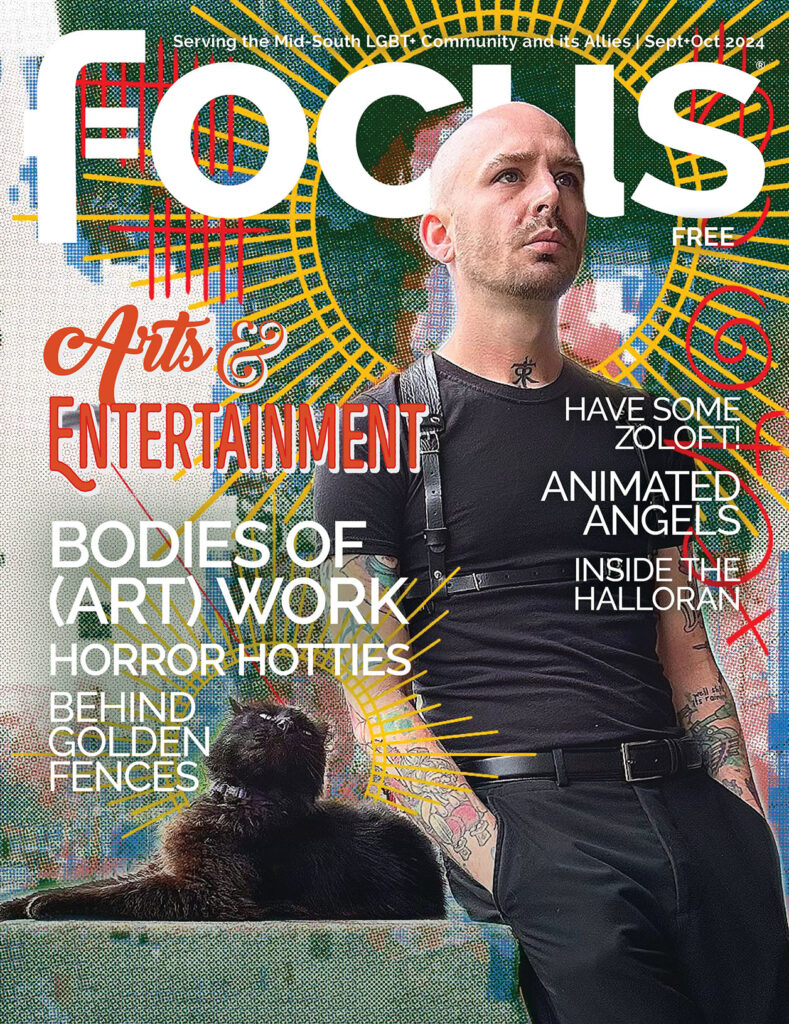MRD has been ‘hip whipping’ since 2006, and they aren’t stopping any time soon.
This story was featured in our print and digital July/August issue.
The tap and whir of the skates, the smack of the players bumping each other, and the joyful noises of an engaged crowd—these are the sounds of roller derby. Whether at the Pipkin Building or the Agricenter, attending a Memphis Roller Derby game is guaranteed to be a fun and exciting time!
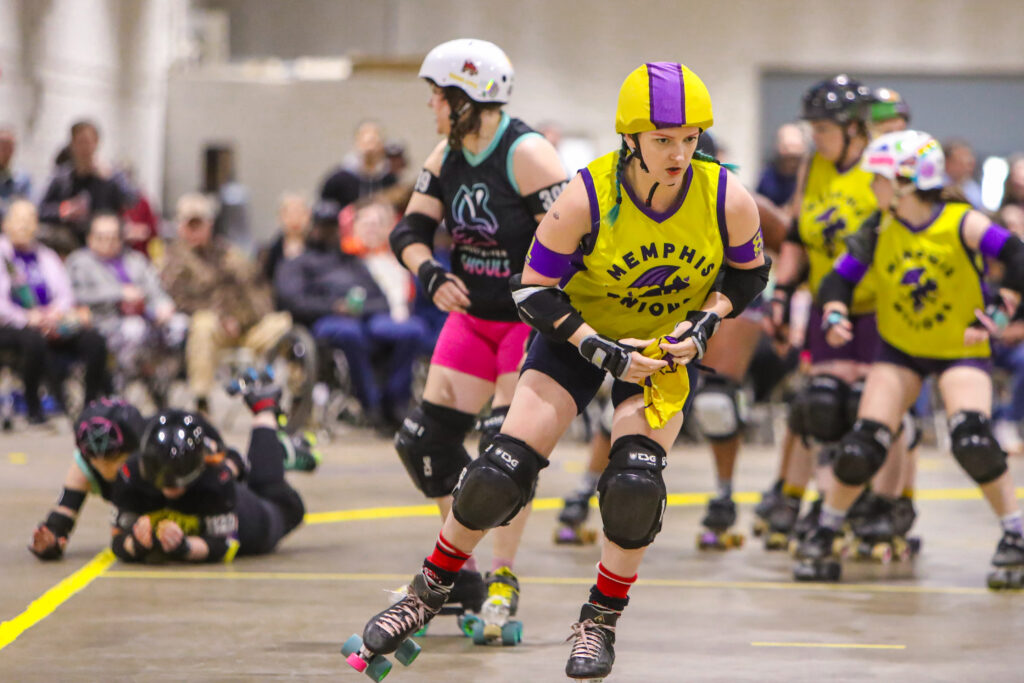
Since 2006, Memphis Roller Derby has dazzled spectators and built bonds between players. It is a 501(c)3 non-profit organization affiliated with the Women’s Flat Track Roller Derby Association (WFTDA), the international governing body of women’s flat track roller derby. Despite being housed under a women’s association, Memphis Roller Derby (MRD) allows players of all genders, races, body types, ethnicities, sexualities, and skill levels.
MRD specifically makes roller derby accessible to people of different socioeconomic statuses. For example, their Skate School Bootcamps run six to eight weeks with a program cost of only $15. Players pay a sliding scale fee each season based on their income to participate.
Roller derby rules are straightforward, though there are many. Flat track roller derby consists of two thirty-minute periods, broken up into ‘jams’ of up to two minutes each, played on a flat, oval track. Two teams of roller-skating players are on the track in competition. Players are assigned the roles of jammers, who score points for their team, and blockers, who try to keep jammers from scoring while clearing the way for their team’s jammer to score. Jammers score one point for every blocker on the opposing team they get past.
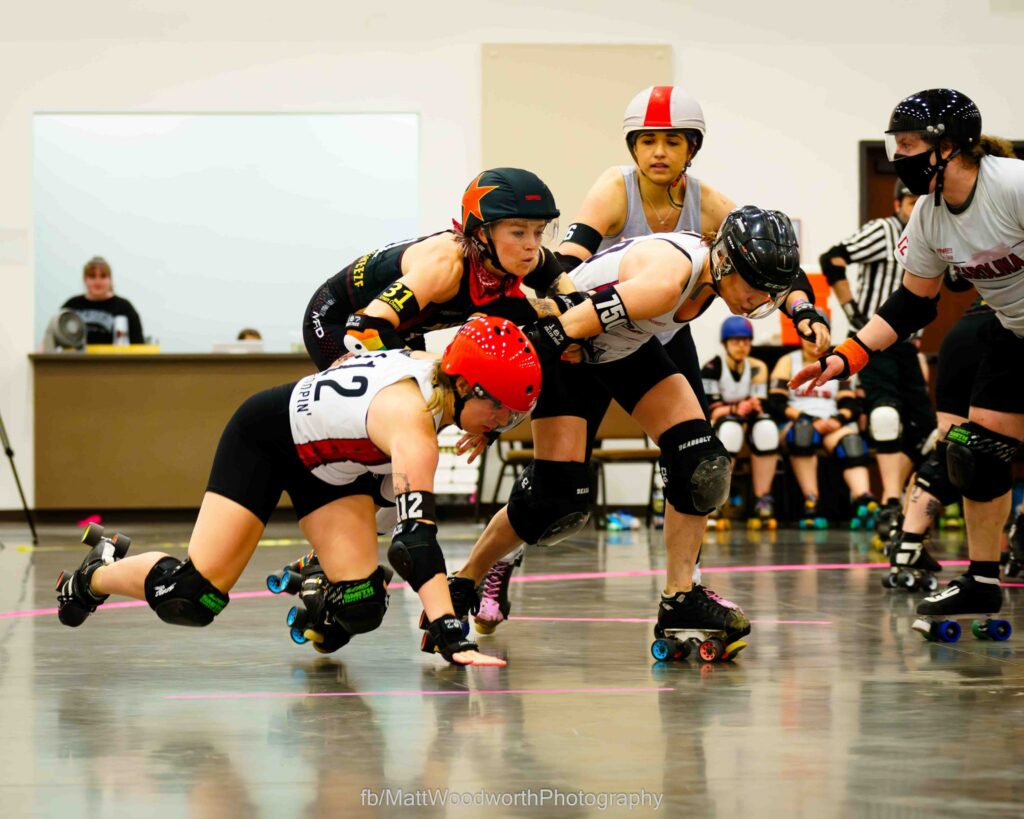
While roller derby is a full-contact sport, injuries can happen, and safety is taken seriously. Players cannot, for example, make contact with another player’s head, back, knees, lower legs, or feet. Doing so would result in being sent to the penalty box.
A unique joy within roller derby is the amazing monikers bestowed on the players, many of which call to happenings in popular culture. MRD features names like Midtown Maulher, Lavendar Menace, Coaster Strudel, Scream Cheeze, Good Egg, TJ Smaxx, Blastphemous, Mardi Brawl, Heathen Universe, Rosemary’s Gaybee and Rage-rienne.
Choosing a skater’s nom de guerre has a long history in roller derby and is an integral part of the subculture. While different teams have different norms around name choices, skaters at Memphis Roller Derby put a lot of time and creativity into their derby names. This allows them to create an alter-ego around which they craft a derby persona. However they’re chosen, whether funny or aggressive, or even if they’ve changed throughout a skater’s career, their chosen names allow skaters to express themselves and create their on-track alter egos.
Another interesting aspect of the roller derby subculture is its linkages to the LGBTAIQQ+ community. Roller derby often creates a space in which skaters can explore alternative identities and challenge traditional ideas about appropriately feminine behavior.
Heathen Universe said, “In roller derby, women can be strong. It’s a skater-run sport.”
Though multiple skaters interviewed for this piece said it isn’t always true for all roller derby teams, Memphis Roller Derby is a very inclusive community.
“Even people who join roller derby who are not as familiar with the LGBTAIQQ+ community are obviously trying to learn and be respectful,” said Blastphemous.
Roller derby challenges the gender binary by creating a space for alternative forms of gender expression. Traditional ideas of femininity in Western culture tend to eschew physicality and aggressiveness, which are prized in roller derby.
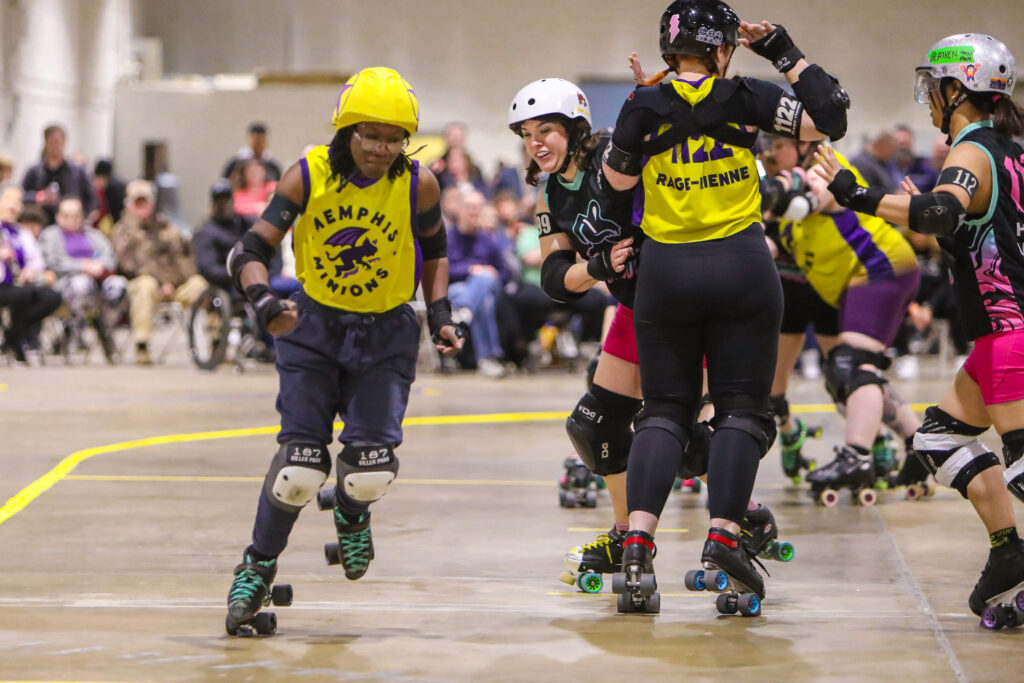
This made it a haven for people who didn’t conform to traditional gender norms and a safe space for LGBTAIQQ+ individuals. Skaters’ identities run the gamut for gender identity and sexual orientation, and their presentations of these identities are as varied as one can imagine. Some even choose to display their pronouns on their jerseys or helmets.
However, some skaters pointed out that while the Memphis Roller Derby is very welcoming, men are not allowed to compete in sanctioned games by their governing body, the WFTDA. Even still, Memphis Roller Derby does allow male skaters to participate in scrimmages. Players also mentioned the inclusiveness of Memphis Roller Derby by race, though they reported less racial inclusivity on other teams.
A notable commonality among interviewed skaters was a sense of isolation and not fitting in before finding roller derby, or struggling to make friends as an adult after finishing school. Some skaters reported having roller skated since childhood, while others said they’d tried a roller derby boot camp on a lark, but none reported expecting to find such a place that fits them.
For many, the acceptance and “finding of one’s tribe” in roller derby were pleasant surprises. This supportive, inclusive space has allowed MRD skaters to express themselves in ways they might not have felt comfortable doing previously.
Coaster Strudel said, “Memphis Roller Derby welcomes people from all walks of life.”
This fact helped players with self-acceptance and affirmed their belonging. Players linked their sense of acceptance and belonging to the supportive coaching and feedback they received. This was contrasted with alienation from being screamed at for poor performance in other sports they had played.
The sense of connection and support builds skaters’ confidence in themselves, which carries over to their lives outside the sport. For example, Midtown Maulher discussed how the skills she learned in roller derby, like management, delegation, efficiency and organization, helped her to be a better nurse in her work life. Blastphemous noted the strong sense of self they had developed during their time in roller derby helped them in all aspects of their life.
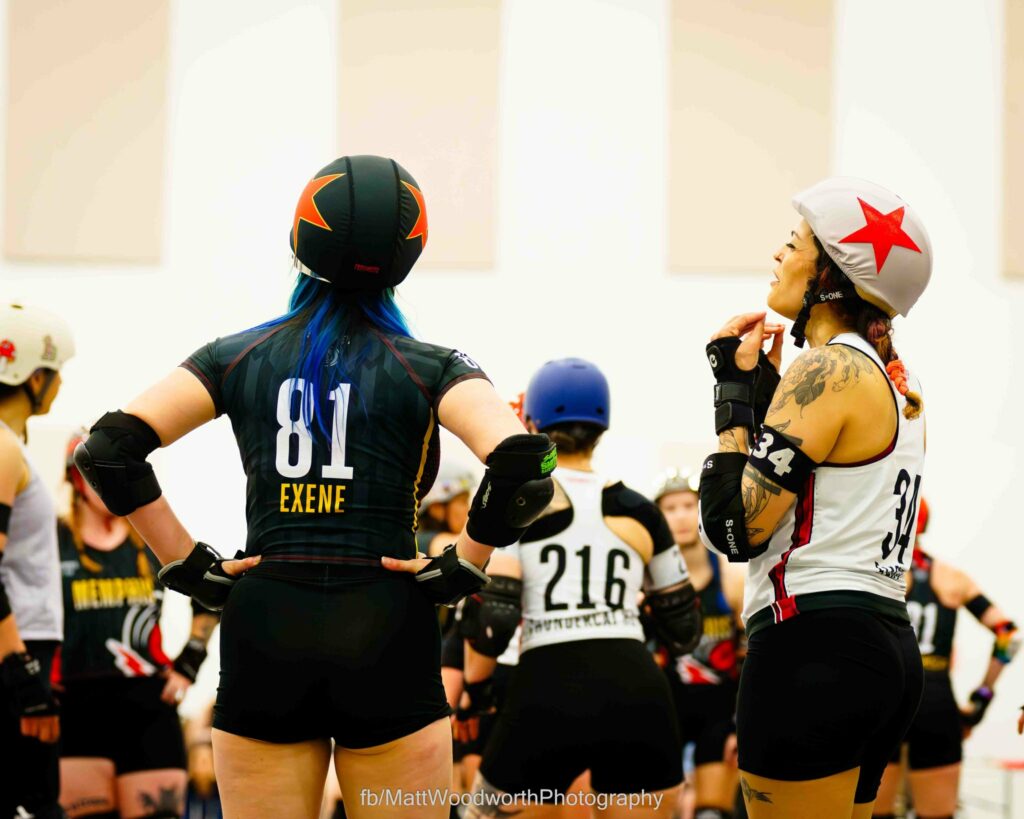
Coaster Strudel showed admiration for the sort of players, officials and fans who tend to be inspired by the unconventional sport, “Since roller derby isn’t a mainstream sport, it tends to draw weird, cool people.”
Memphis Roller Derby halftime acts have included Opera Memphis, the Memphis Armored Fight Club, the Memphis Gaelic Athletic Association, and performances by local drag queens such as the spectacular Brenda Newport. The events include local food trucks such as Pokcha’s Eggrolls and vendors like glass artist and author Katie Silverwings. The popular “Chuck-a-Duck” fundraiser is also common at games and is an excellent source of interactivity with the crowd.
Whether you’re interested in participating in MRD or looking for a fun time, the next home bout is August 3rd at 4 pm at the Pipkin Center. It’s a double-header! Come and see what roller derby is all about!



